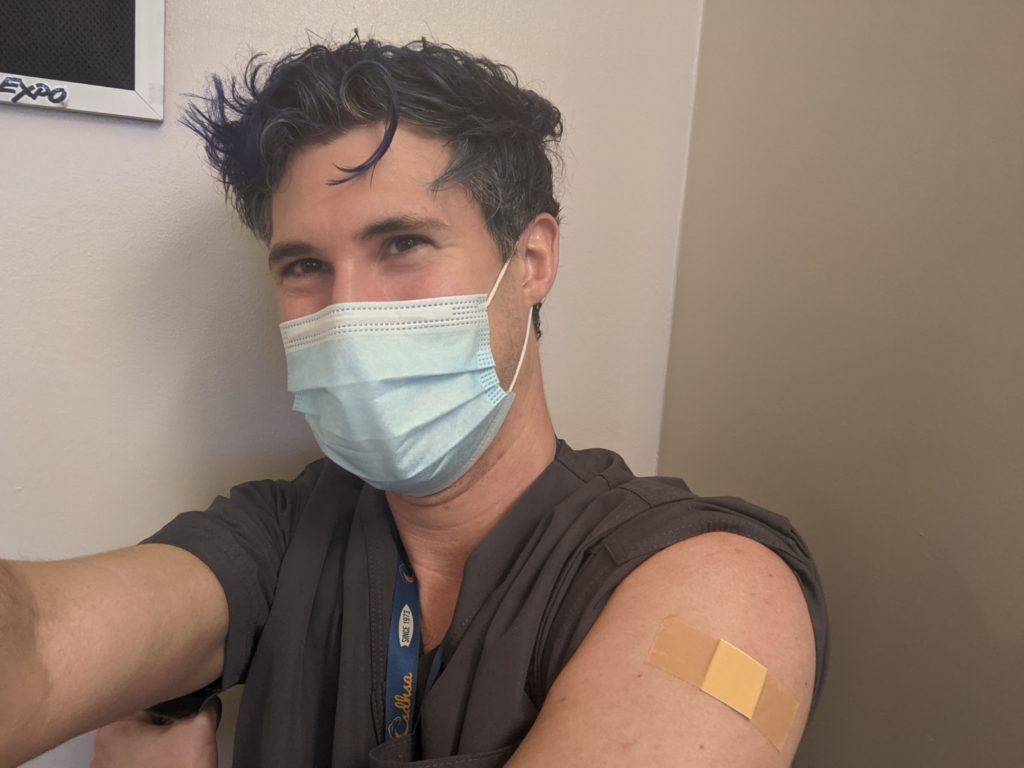Now that COVID-19 vaccination administrations have been underway for some time, reports about vaccine reactions have begun popping up. Often the description used is “severe allergic reaction,” but what that means in practice, and how it should affect who gets a vaccine, deserves a bit more scrutiny.

Medically, the severe allergic reaction that is occurring is known as anaphylaxis, a rapidly-developing immune system overreaction that typically affects multiple organ systems and can indeed be life-threatening. However, it is also treatable. Epinephrine (0.3 mg of which is contained in an EpiPen) stops anaphylaxis dead in its tracks. If the peanuts finding their way into my food ended up in a trail mix I carried deep into Joshua Tree National Park where there is no cell phone service and I left my epi in my backpack in the car, there’s a chance I could die. Thankfully, vaccines are given in hospitals, doctors’ offices, and medical facilities where epinephrine is readily on hand and recipients can be monitored afterward. And while the events get a lot of news coverage, they seem to be quite rare when compared against the number of vaccines administered to date.
Besides anaphylaxis, there are also a number of lesser effects or reactions that can occur. I find that it can be helpful to know about them beforehand so one can know what range of things to expect.
Adverse Effects
Feeling sick, even miserable. Good news! Your body is working. Vaccines are supposed to give your immune system a “practice” form of the disease so it can “win” and have defenses prepared for when it encounters the real thing. Knowing this, I think it’s somewhat more remarkable that so many people feel completely fine afterward.
Redness/soreness around the site. This is a local reaction, which is not dangerous. It is similar to the kinds of local reactions one might get from thorns or cat scratches. Additionally, vaccines that are administered intramuscularly can make that the surrounding muscle feel sore for several days.
Vasovagal syncope. Sudden heart pounding, chest tightness, difficulty breathing, and passing out happens to a lot of people around needles. This response is the brain physically responding to the situation surrounding vaccination, and is not the same as anaphylaxis.
Allergy
A simple allergic reaction might affect only one organ system and does not result in airway compromise (difficulty breathing). This includes things like rashes—getting a rash is okay. If it is itchy, try diphenhydramine (Benadryl) to relieve the symptoms. As long as there is no affect on mucous membranes (such as the inside of the mouth) and there is no airway swelling, these kind of reactions, while uncomfortable, will pass on their own in a few days
Severe Allergy—Anaphylaxis
This reaction requires immediate treatment with epinephrine, which is why giving vaccines is not typically an “administer at home packet” the way it is portrayed in Contagion. Even if one has had anaphylactic reactions to vaccines in the past, it is important to weigh the risks versus the benefits. In this case, a temporary, treatable reaction is contrasted with contracting and spreading a deadly disease. In the hospital, this is something that often has to be done with various types of cancer drugs. Children with neuroblastoma that get admitted to the hospital for dinutuximab therapy are sometimes in a near-constant state of anaphylaxis during the two-day infusion. If this happens, a careful balance is maintained with a corresponding infusion of epinephrine.
Something else to consider is that allergies do not typically run in families. A parent or relative who had a reaction does not mean that you will have the same outcome. Given all this information (and my own experiences with peanuts), I would say that reactions, up to and including potential anaphylaxis, are not a reason to avoid getting at least the first vaccine. If it does happen, the CDC simply recommends not getting the second one, and this contraindication would not extend to other types of vaccines. Of course, anyone with concerns related to their specific medical condition should consult with their primary care physician.
Finally, my own experience getting both doses of the vaccine were relatively benign. I definitely had some arm soreness and felt fatigued the following day (especially after the second dose). That being said, attributing the fatigue to the immunization is confounded by the fact that on both occasions I was coming off of overnight shifts. I am in residency, after all.
